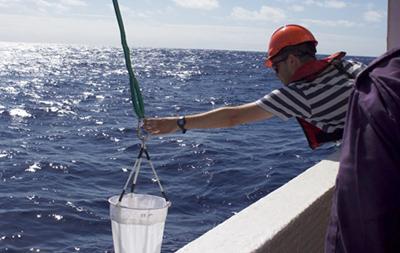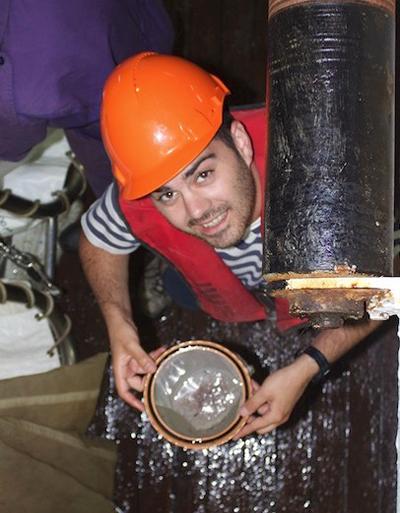Ocean and Earth Scientist takes his research to Parliament

Rui Vieira a PhD student at Ocean and Earth Science specializing in Deep-sea ecology, biological oceanography, fisheries, taxonomy and hailing from Marinha Grande (Portugal), is attending Parliament to present his biological research to a range of politicians and a panel of expert judges, as part of SET for Britain on Monday 7 March.
Rui's poster on research about fisheries impact on deep-sea ecosystems will be judged against dozens of other scientists’ research in the only national competition of its kind.
Rui was shortlisted from hundreds of applicants to appear in Parliament.
On presenting his research in Parliament, he said, “science and society should, more than ever, be linked. SET for Britain is an excellent opportunity to bring our work to the society and policy-makers. I hope to contribute to change a bit the way we look at marine ecosystems, particularly the deep sea, which we still know very little about, but also to exchange some ideas with MPs about this issue.”

Stephen Metcalfe MP, Chairman of the Parliamentary and Scientific Committee, said:
“This annual competition is an important date in the parliamentary calendar because it gives MPs an opportunity to speak to a wide range of the country’s best young researchers.”
“These early career engineers, mathematicians and scientists are the architects of our future and SET for Britain is politicians’ best opportunity to meet them and understand their work.”
Rui’s research has been entered into the Biological and Biomedical Sciences session of the competition, which will end in a gold, silver and bronze prize-giving ceremony.
Judged by leading academics, the gold medalist receives £3,000, while silver and bronze receive £2,000 and £1,000 respectively.
The Parliamentary and Scientific Committee runs the event in collaboration with the Royal Society of Biology, the Royal Academy of Engineering, the Royal Society of Chemistry, the Institute of Physics, The Physiological Society and the Council for Mathematical Sciences, with financial support from Essar, the Clay Mathematics Institute, Warwick Manufacturing Group (WMG), the Institute of Biomedical Science, the Bank of England and the Society of Chemical Industry.

Notes for editors
1. SET for Britain
SET for Britain is a poster competition in the House of Commons - involving approximately 210 early stage or early career researchers - judged by professional and academic experts. All presenters are entered into either the engineering, the biological and biomedical sciences, the physical sciences (chemistry), the physical sciences (physics) session, or the mathematics session, depending on the researcher’s specialism.
Each session will result in the award of Bronze, Silver and Gold certificates. Bronze winners will receive a £1,000 prize; Silver, £2,000; and Gold, £3,000 and a medal. There will also be an overall winner from the four sessions who will receive the Westminster Wharton Medal.
SET for Britain was established by Dr Eric Wharton in 1997. Following his untimely death in 2007, the Parliamentary and Scientific Committee, with support from the Royal Society of Biology, the Royal Academy of Engineering, the Royal Society of Chemistry, the Institute of Physics, The Physiological Society and the Council for Mathematical Sciences, is working to further his legacy.
The event is made possible this year by the prize sponsors, who are Essar, the Clay Mathematics Institute, Warwick Manufacturing Group (WMG), the Institute of Biomedical Science, the Bank of England and the Society of Chemical Industry.
The competition is open to early stage or early career researchers, which includes university research students, postgraduates, research assistants, postdocs, research fellows, newly-appointed lecturers, part-time and mature students, returners, those people embarking on a second career, and their equivalent in national, public sector and industrial laboratories, and appropriate final year undergraduate and MSc students, all of whom are engaged in scientific, engineering, technological or medical research.
2. The Royal Society of Biology www.rsb.org.uk is a single unified voice for biology: advising Government and influencing policy; advancing education and professional development; supporting our members, and engaging and encouraging public interest in the life sciences. The Society represents a diverse membership of individuals, learned societies and other organisations.